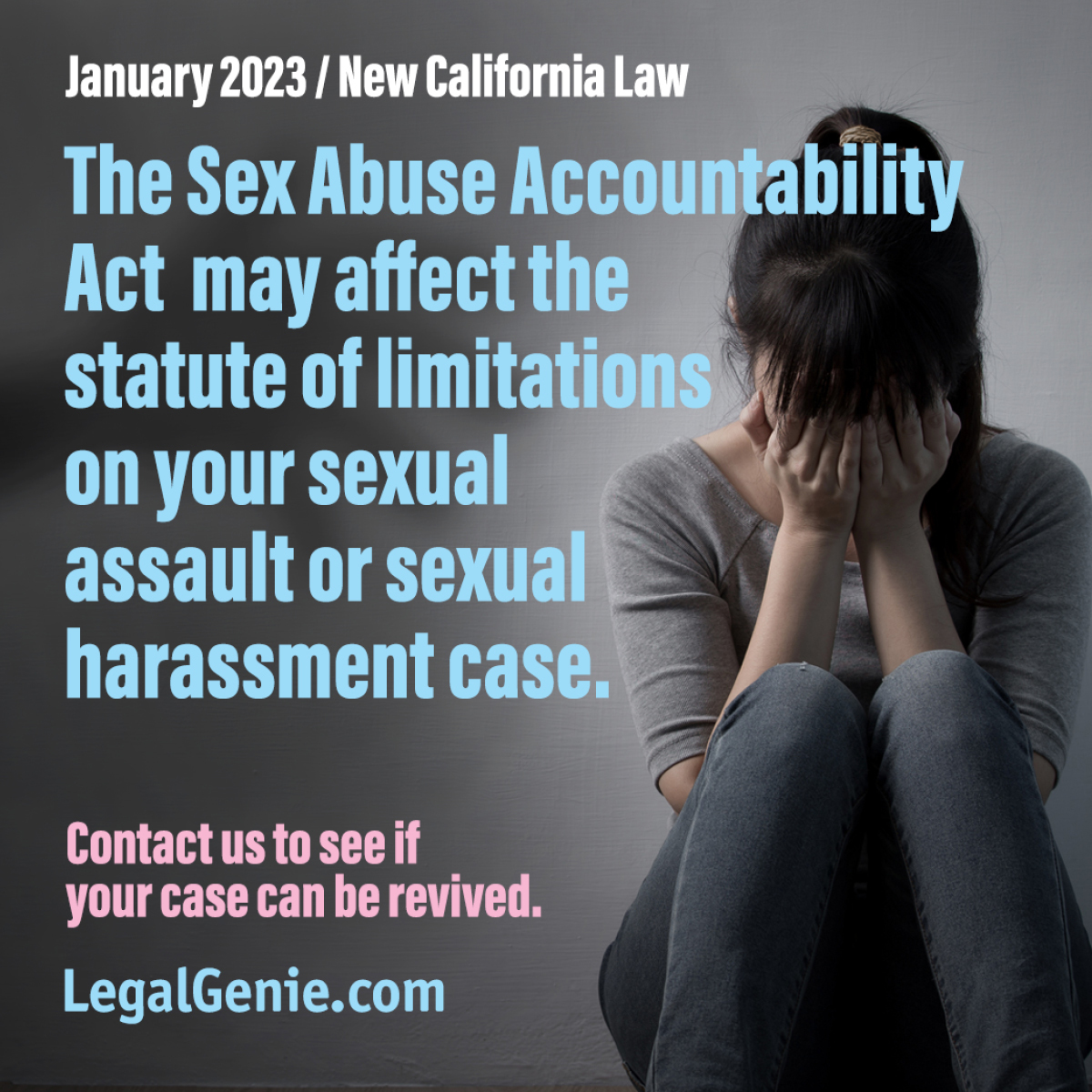The California Sexual Abuse and Cover Up Accountability Act (AB2777)
Effective January 1, 2023, the Sexual Abuse and Cover Up Accountability Act (AB 2777) revives certain sexual assault and related claims where the statute of limitations has previously lapsed.
Due to this change, you may be able to hold perpetrators accountable, and get financial compensation for the survivors of their conduct.
The California Sexual Abuse and Cover Up Accountability Act (AB2777)

Effective January 1, 2023, the Sexual Abuse and Cover Up Accountability Act (AB 2777) revives certain sexual assault and related claims where the statute of limitations has previously lapsed.
Due to this change, you may be able to hold perpetrators accountable, and get financial compensation for the survivors of their conduct.

AB 2777 revives sexual assault and related claims where the statute of limitations has passed in the following situations:
- Sexual assaults that happened on or after 1/1/09 and that violate Penal Code 243.4 (sexual battery with restraint); 261 (rape); 264.1 (gang rape); 286 (sodomy); 287 (oral copulation); 289 (penetration by force, coercion or duress); or former PC 262 (spousal rape) or 288a (oral copulation of minor), and were not fully litigated or settled by 1/1/23.
- Sexual assaults that happened on or after the victim’s 18th birthday and that have not been fully litigated or settled can be pursued if plaintiff alleges all the following:
- a.) Plaintiff was sexually assaulted.
b.) One or more entities are legally responsible for damages arising out of the sexual assault.
c.) The entity or entities, including, but not limited to, their officers, directors, representatives, employees, or agents, engaged in a cover up or attempted a cover up of a previous instance or allegations of sexual assault by an alleged perpetrator of such abuse.
d.) These include sexual harassment and retaliation claims based on sexual assault.
AB 2777 also states that, “’Cover up’ means a concerted effort to hide evidence relating to a sexual assault that incentivizes individuals to remain silent or prevents information relating to a sexual assault from becoming public or being discloses to the plaintiff, including, but not limited to, the use of nondisclosure agreements or confidentiality agreements….”
AB 2777 revives sexual assault and related claims where the statute of limitations has passed in the following situations:
- Sexual assaults that happened on or after 1/1/09 and that violate Penal Code 243.4 (sexual battery with restraint); 261 (rape); 264.1 (gang rape); 286 (sodomy); 287 (oral copulation); 289 (penetration by force, coercion or duress); or former PC 262 (spousal rape) or 288a (oral copulation of minor), and were not fully litigated or settled by 1/1/23.
- Sexual assaults that happened on or after the victim’s 18th birthday and that have not been fully litigated or settled can be pursued if plaintiff alleges all the following:
- a.) Plaintiff was sexually assaulted.
b.) One or more entities are legally responsible for damages arising out of the sexual assault.
c.) The entity or entities, including, but not limited to, their officers, directors, representatives, employees, or agents, engaged in a cover up or attempted a cover up of a previous instance or allegations of sexual assault by an alleged perpetrator of such abuse.
d.) These include sexual harassment and retaliation claims based on sexual assault.
AB 2777 also states that, “’Cover up’ means a concerted effort to hide evidence relating to a sexual assault that incentivizes individuals to remain silent or prevents information relating to a sexual assault from becoming public or being discloses to the plaintiff, including, but not limited to, the use of nondisclosure agreements or confidentiality agreements….”
